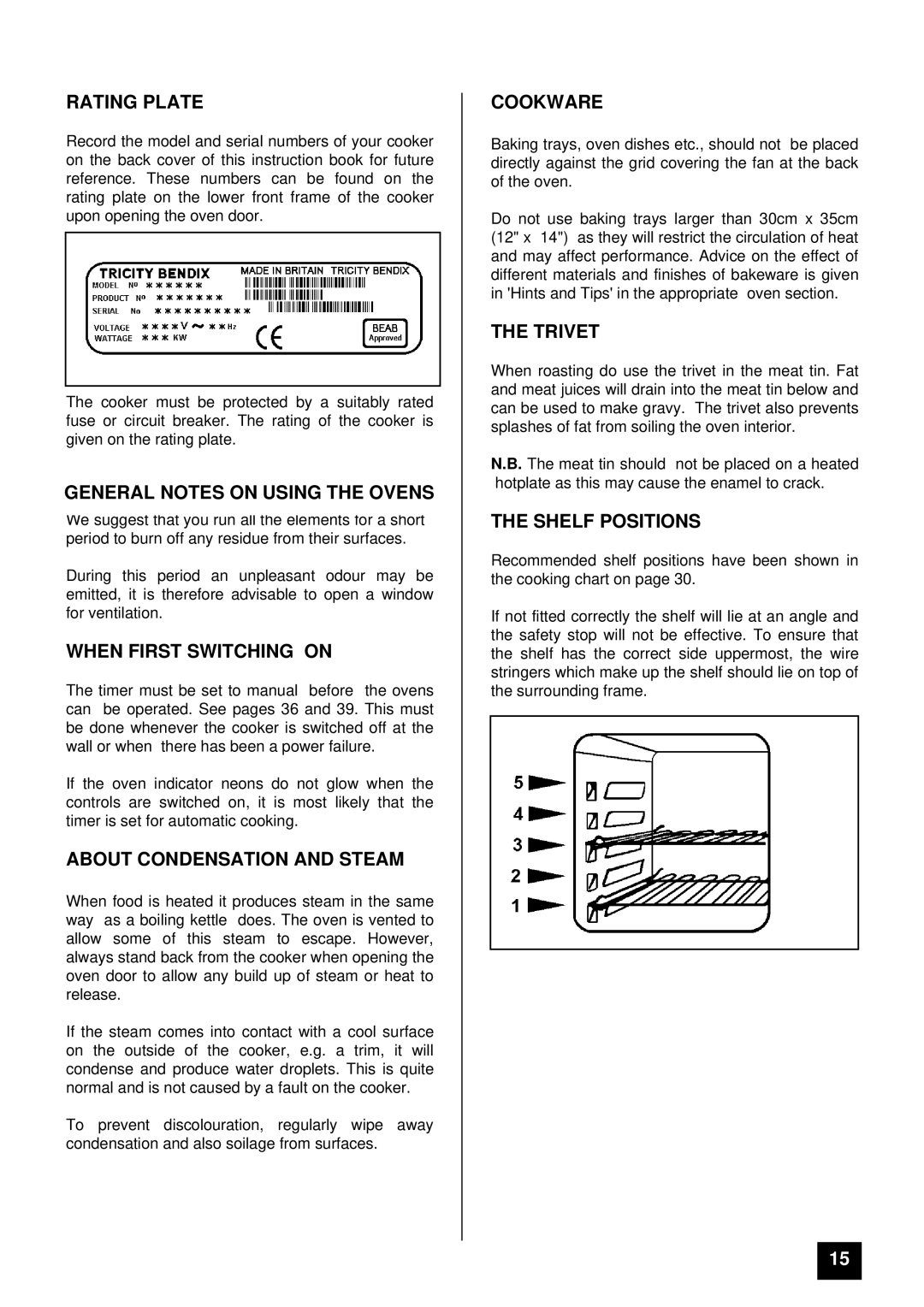
RATING PLATE
Record the model and serial numbers of your cooker on the back cover of this instruction book for future reference. These numbers can be found on the rating plate on the lower front frame of the cooker upon opening the oven door.
The cooker must be protected by a suitably rated fuse or circuit breaker. The rating of the cooker is given on the rating plate.
GENERAL NOTES ON USING THE OVENS
We suggest that you run all the elements for a short period to burn off any residue from their surfaces.
During this period an unpleasant odour may be emitted, it is therefore advisable to open a window for ventilation.
WHEN FIRST SWITCHING ON
The timer must be set to manual before the ovens can be operated. See pages 36 and 39. This must be done whenever the cooker is switched off at the wall or when there has been a power failure.
If the oven indicator neons do not glow when the controls are switched on, it is most likely that the timer is set for automatic cooking.
ABOUT CONDENSATION AND STEAM
When food is heated it produces steam in the same way as a boiling kettle does. The oven is vented to allow some of this steam to escape. However, always stand back from the cooker when opening the oven door to allow any build up of steam or heat to release.
If the steam comes into contact with a cool surface on the outside of the cooker, e.g. a trim, it will condense and produce water droplets. This is quite normal and is not caused by a fault on the cooker.
To prevent discolouration, regularly wipe away condensation and also soilage from surfaces.
COOKWARE
Baking trays, oven dishes etc., should not be placed directly against the grid covering the fan at the back of the oven.
Do not use baking trays larger than 30cm x 35cm (12" x 14") as they will restrict the circulation of heat and may affect performance. Advice on the effect of different materials and finishes of bakeware is given in 'Hints and Tips' in the appropriate oven section.
THE TRIVET
When roasting do use the trivet in the meat tin. Fat and meat juices will drain into the meat tin below and can be used to make gravy. The trivet also prevents splashes of fat from soiling the oven interior.
N.B. The meat tin should not be placed on a heated hotplate as this may cause the enamel to crack.
THE SHELF POSITIONS
Recommended shelf positions have been shown in the cooking chart on page 30.
If not fitted correctly the shelf will lie at an angle and the safety stop will not be effective. To ensure that the shelf has the correct side uppermost, the wire stringers which make up the shelf should lie on top of the surrounding frame.
15
